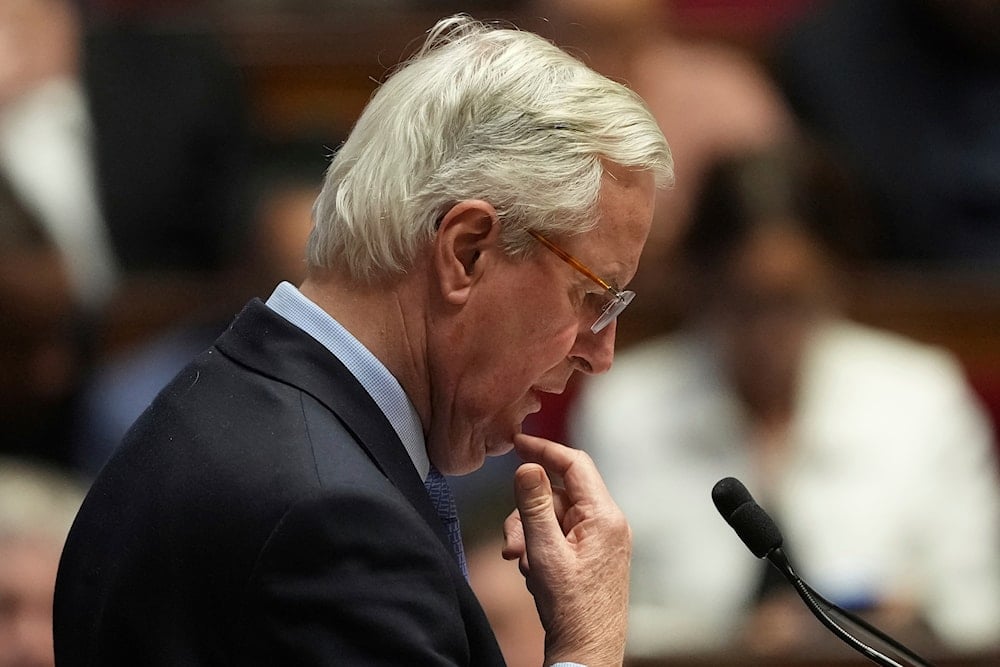French government falls in historic no-confidence vote
French lawmakers vote to remove Prime Minister Michel Barnier's government, just three months after he took office.
-

French Prime Minister Michel Barnier addresses the National Assembly before a vote on a no-confidence motion that brought him down and his cabinet for the first time since 1962, on December 4, 2024, in Paris. (AP)
On Wednesday, French lawmakers voted to remove Prime Minister Michel Barnier's government just three months into his term, marking a historic decision that deepened the country's political turmoil.
For the first time in more than six decades, the National Assembly's lower house ousted the sitting government by passing a no-confidence vote. While the motion was initially proposed by the far-left, it gained crucial support from the far-right led by Marine Le Pen.
Barnier's swift removal from office follows snap parliamentary elections this summer, which resulted in a hung parliament with no party securing an overall majority. In this deadlock, the far-right holds crucial leverage over the government's survival.
President Emmanuel Macron now faces the difficult task of selecting a viable successor, with more than two years remaining in his presidential term.
With the backing of the far-right, a majority of 331 MPs in the 577-member chamber voted to remove the government. Speaker Yael Braun-Pivet confirmed that Barnier would now be required to "submit his resignation" to President Macron and declared the session closed.
Requests for Macron to resign
Macron accused Le Pen's far-right of "unbearable cynicism" for supporting the no-confidence motion on Tuesday. With no new elections allowed within a year of last summer's vote, Macron's options for resolving the political deadlock are severely limited.
Laurent Wauquiez, leader of the right-wing deputies in parliament, stated that both the far-right and the hard-left were responsible for the no-confidence vote, which he warned would "plunge the country into instability."
Some have suggested that Macron should resign to resolve the political deadlock, but the president dismissed these calls, labeling such a scenario as "political fiction."
In September, President Macron overlooked the leftist coalition that won the most votes in the parliamentary elections by choosing Barnier, a figure from the traditional centrist right, angering the left. Since then, Barnier has faced significant challenges, living "the hell of Matignon," a term used to describe the difficulties of governing from Matignon Palace, where the prime minister holds limited power, according to NYT.
On Monday, Barnier pushed a budget bill through the lower house of Parliament without a vote, a risky move that prompted no-confidence motions from both left-wing parties and Marine Le Pen’s far-right National Rally.

 3 Min Read
3 Min Read








